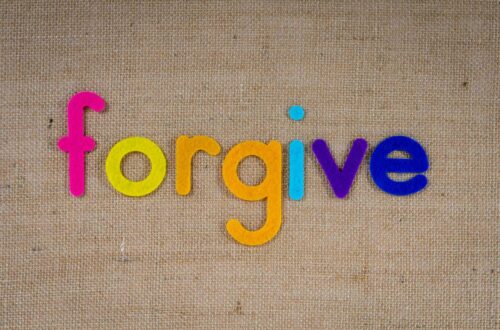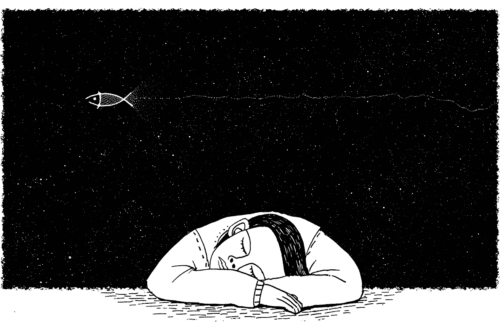Understanding Our Relationships Through Introspection
Relationships occupy a central place in our lives and have profound impacts on our wellbeing. Yet we often feel puzzled by the dynamics that arise within them. Why do conflicts keep occurring with a certain person? Why do I sometimes overreact to a loved one’s words? The key to unraveling these mysteries lies in understanding ourselves more deeply.
Introspection, the act of examining our own thoughts and emotions, serves as a mirror that reflects back hidden aspects of our relationships. When we look inward through mindful self-reflection, we gain access to our subconscious patterns, triggers, and biases. This empowers us to move through life’s connections with greater clarity, empathy, and mindfulness.
By exploring the landscape within, we can better navigate the intricate terrain of relationships. We come to understand what causes recurring issues and how our past continues to shape the present. This self-knowledge allows us to evolve the way we relate to others, creating deeper and more fulfilling bonds.
The journey of introspection requires courage, vulnerability and perseverance. At times it can be uncomfortable to confront our flaws, quirks and unhealed wounds. But time has proven that those willing to look within emerge wiser, more compassionate and better equipped to achieve meaningful human connection.
This piece will serve as a guidebook for using introspection to understand, strengthen and find greater joy in our relationships. Let us begin unraveling the mysteries within.
Understanding Oneself
Self-reflection allows us to identify patterns, gain insight, and understand ourselves at a deeper level. By looking inward, we can start noticing our typical reactions and habitual behaviors in relationships.
For example, if you often feel resentful or hurt by a loved one but aren’t sure why, self-reflection can help uncover the root causes behind your emotional responses. Perhaps you had a parent who was frequently critical or emotionally distant, so those behaviors from your partner trigger old wounds. Or maybe you experienced betrayal in a past relationship, making it hard to trust again.
The key is to make introspection a regular practice. Set aside quiet time to thoughtfully reflect on your interactions, reactions, and relationship history. Keep a journal to record important insights. The goal is to understand yourself well enough to recognize your patterns, triggers, and tendencies.
This level of self-awareness provides a foundation for making positive changes. By identifying unhealthy dynamics that stem from your past, you can work to heal them. And by being aware of your engrained patterns, you can consciously choose new and healthier ways of relating, instead of blindly repeating history. The inward journey of self-discovery is essential for nurturing authentic, fulfilling connections.
Managing Triggers
Our emotional triggers often originate from past experiences, particularly those from childhood. The relationships and events that shaped us early in life have an outsized influence on our emotional makeup. As author and therapist Lori Gottlieb explains, “How we were parented and our earliest relationships affect who we become as well as how we unconsciously relate to others.”

When a present-day situation triggers an emotional response, it pays to dig deeper and ask yourself where that feeling is coming from. Often we will find the root goes back to a memory or association from long ago. For example, a seemingly innocuous comment from a partner may subconsciously remind you of criticism from a parent. The key is slowing down, breathing, and taking time to connect the dots between what you’re feeling now and where it began.
Mapping out these links takes practice but gets easier over time. Gottlieb suggests asking yourself questions like:
- How old do I feel right now?
- Does this situation remind me of a dynamic from childhood?
- Have I felt this way before in a similar context?
By patiently investigating our emotional archeology in this way, we can identify recurring trigger points. This self-knowledge then allows us to short-circuit destructive reactions, viewing current relationships through a healthier lens.
Communication Skills: The Introspective Approach
An introspective approach to communication involves a deep level of self-awareness. Before engaging in dialogue, we should consider the following questions:
- What are my true feelings and intentions in this moment?
- How might my words and actions affect the other person?
- Am I being guided by ego or by the desire for mutual understanding and connection?
By taking a pause for inner contemplation, we can become more attuned to our own emotional landscape. This builds empathy, as we realize that just as we have inner emotions and sensitivities, so does the other person.

With this mindset, we can communicate in a more compassionate way that validates the perspectives and experiences of others. Speaking our truth with care and considering the impact of our speech cultivates an atmosphere of trust and respect.
The introspective communicator aims to connect rather than control. This means listening deeply, and being willing to reflect on how we may unintentionally contribute to conflicts. Awareness of our own possible biases and triggers prevents us from escalating disagreements with unconscious defensive reactions.
When both parties in a relationship practice self-inquiry and mindful communication, understanding blossoms. Judging less and relating more becomes the new normal. Problems can then be discussed with sincerity, leading to collaborative conflict resolution.
Overall, an introspective approach allows us to transcend ego-based patterns, creating space for the sacredness of human connection. Our relationships become infused with more authenticity, empathy and mutual growth.
Understanding Vulnerability
Embracing vulnerability is key to forming deeper connections and building trust in relationships. When we open ourselves up to being vulnerable, we allow others to truly see us for who we are.
Brené Brown, a prominent researcher on vulnerability, found that exposing our real selves fosters intimacy and strengthens bonds. Being vulnerable involves sharing openly about our feelings, our struggles, our fears, and our imperfections. It requires having the courage to take off the mask and drop the facade.
This process understandably brings up fear and discomfort. We worry about being judged, misunderstood, or rejected. However, true belonging and connection can only happen when we push past those fears. Vulnerability involves risk, uncertainty, and emotional exposure. But it is worth it.
Vulnerability allows us to bond through shared experiences and mutual understanding. It deepens empathy, compassion, and care for one another. When both people in a relationship practice vulnerability, they create a safe space where each can express their authentic selves.
Being vulnerable is not easy, but it is necessary for healthy, fulfilling relationships. The rewards are immense. Vulnerability leads to feeling truly known, appreciated, and loved. It enables us to find the belonging we intrinsically crave as human beings.
Setting Boundaries with Self-Knowledge
Discerning and upholding personal boundaries is an essential relationship skill that stems from self-knowledge gained through introspection. Boundaries allow us to communicate our needs and limitations with compassion.

When our boundaries go unrecognized, we may find ourselves accepting behaviors or situations that make us uncomfortable. This breeds resentment, drains our energy, and corrodes the integrity of the relationship.
Through introspection, we gain clarity on our core values, priorities, and dealbreakers. Armed with this self-knowledge, we can identify appropriate boundaries and stand firm in voicing them. For instance, if constant criticism from a partner is negatively impacting your self-esteem, you have the right to request a change in their communication style.
Expressing boundaries in an open and respectful manner is key. Blame or aggression often lead to defensiveness. Using “I feel…” statements keeps the focus on your experience rather than judging or attacking the other person.
Healthy relationships require mutual understanding of each individual’s boundaries. Discussing them openly allows both parties to thoughtfully honor them. When boundaries are crossed, introspection also aids in determining if reconciliation is possible through respectful communication and appropriate behavioral changes.
Setting clear boundaries with self-awareness and care fosters relationships based on harmony, trust, and consideration of one another’s needs and values.
Resolving Conflict through Introspection
Conflict is inevitable in our relationships. When disagreements arise, our natural instinct is often to blame others. But introspection allows us to recognize our own role in the situation. By looking inward, we can:
- Identify our needs and expectations leading up to the conflict. Were they reasonable and clearly communicated?
- Examine our approach to the disagreement. Were we listening to understand or just waiting to speak?
- Consider how we interpreted the other person’s words and actions. Did we make false assumptions?
- Reflect on how we responded and our choice of words. Were we respectful?
- Acknowledge our own imperfections and areas for improvement.
Taking an introspective approach prevents us from seeing ourselves as victims while vilifying others. It helps us recognize opportunities for personal growth within the conflict.
Through introspection, we also uncover any unresolved pain or insecurities driving our reactions. By addressing the emotional root cause, we can interact with others from a place of inner peace rather than defensiveness.
With self-awareness, we become empowered to take responsibility for our part, offer sincere apologies, and engage in constructive dialogue to find a mutually agreeable solution. Rather than divide relationships, introspective conflict resolution brings understanding and intimacy.
Forgiveness: The Pathway to Healing
Forgiveness is an act of deep self-reflection that allows us to let go of anger, resentment and thoughts of revenge. When introspecting on forgiveness, consider:
- What events or actions caused the hurt? Recognize the pain while releasing blame or judgment of self/other.
- How has the lack of forgiveness affected you mentally and emotionally? Carrying resentment drains our spirit.
- Do you truly want to move forward in a positive direction? Forgiveness takes courage and commitment.
- Are you ready to view the situation and the person from a lens of understanding? This empathy evokes compassion.
- Can you wish the person well and let go of controlling their actions? Surrender anger to open your heart.
By exploring these aspects introspectively, we pave the pathway to forgiveness. It takes time, but the freedom it brings makes the journey worthwhile. Forgiveness is a gift we give ourselves, allowing us to heal so we can create meaningful connections with minimal past hurts clouding our vision. It is an act of self-love that lifts our spirit and conscience, filling us with light.
Personal Growth – Evolving through Introspection
The journey of introspection allows us to continually evolve, enhancing our self-awareness and wisdom over time. By consistently looking inward, we can identify areas for improvement and make positive changes. Here are some key ways we grow through introspection:
Questioning assumptions – Introspection involves examining our deep-seated beliefs and assumptions about life, relationships, and ourselves. This questioning allows us to shed limiting perspectives and adopt more empowering ones.
Cultivating self-compassion – Observing our thoughts and feelings with kindness enables us to have more compassion for ourselves and others. This provides a foundation for personal growth.
Expanding perspectives – Introspection exposes us to parts of ourselves that may have been previously unknown or ignored. This expanded self-awareness stretches our perspectives.
Discovering purpose – Looking inward often leads to discovering or clarifying one’s life purpose. Understanding our unique gifts and what motivates us allows us to live more meaningfully.
Overcoming obstacles – Introspection helps us identify inner obstacles like fears, limiting beliefs, or unresolved pain that may be holding us back. Addressing these creates space for growth.
Actualizing potential – With expanded self-knowledge, we can set goals and take steps toward actualizing our talents and abilities. Introspection illuminates new possibilities for self-actualization.
Making introspection a consistent practice generates insights and awareness for continual evolution across all facets of life. The inward journey leads us to our highest potential.
The Ongoing Journey of Self-Discovery
In examining the role of introspection in understanding and evolving our relationships, we’ve explored several key points:
- Introspection serves as a mirror, allowing us to identify patterns and understand the roots of our behaviors and emotional reactions. This self-reflection provides insight to make positive changes.
- Recognizing our emotional triggers through inner examination enables us to address them before they sabotage our connections.
- An introspective approach to communication involves asking key questions to foster empathy and mutual understanding.
- Embracing vulnerability deepens bonds and allows us to reveal our true selves.
- Self-knowledge guides us in setting healthy boundaries that maintain respect and balance.
- Continued personal growth through looking inward allows us to navigate relationships with wisdom and compassion.
The journey of self-discovery is a lifelong process. Regular introspection uncovers new layers of understanding about ourselves and others. By committing to this practice, we can experience increasingly meaningful connections and continuously evolve into our best selves. The rewards of this inner work extend outward to touch all of our relationships.
Discover more from Whispers of Insight
Subscribe to get the latest posts sent to your email.





